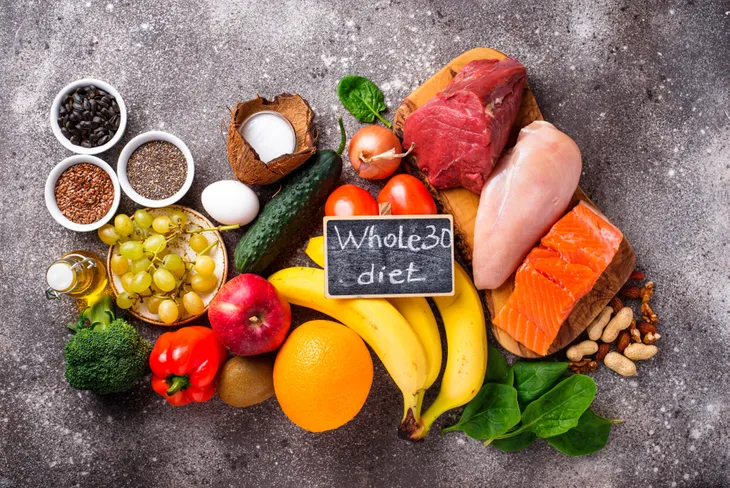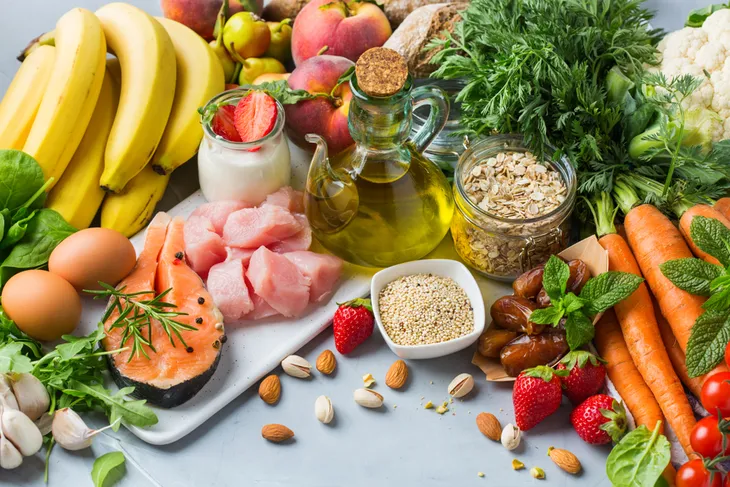Most people wish there was a quick fix when it comes to weight loss but the reality is it requires a lot of dedication, consistency, and hard work. While working out, managing stress, and getting good quality sleep are some of the main contributors to achieving weight loss, what you eat plays an integral role too. But with so many weight loss plans out there, choosing one isn’t always easy.
Not all weight loss programs are created equal either. So it’s important to weigh the pros and cons to help determine which one is best for you. Follow along as we compare the top weight loss programs of 2023.
WW
WW, also previously known as weight watchers, is a diet program that uses a points-based system to help you lose weight. Instead of counting calories, each member is given a specific amount of Personal Points to use each day. Essentially every food and drink is given a points value based on its nutritional content and you’ll subtract points from your Personal Points bank as you eat and drink. Some foods are even assigned zero points, which means they don’t count toward your daily budget.
One of the biggest benefits of WW is that it’s very flexible. You can still eat foods you enjoy and dine out, as long as you eat and drink within your Personal Points allowance. Memberships also include access to their app, tracking tools, and educational resources, and some plans offer 1-on-1 coaching. One possible drawback is that it can be more expensive than some other diet programs.
Noom
Another popular weight loss program of 2023 is Noom, which is a digital app that aims to help you achieve long-term, sustainable weight loss. According to Healthline, this weight loss program requires a monthly subscription fee. However, your subscription includes food and activity tracking tools, recipes, virtual coaching, and interactive daily lessons.
One major benefit to this program is that no food is completely off-limits. The program simply encourages prioritizing foods with “a low calorie density.” The source says Noom categorizes foods as red, yellow, or green based on their nutritional value. The program also encourages other healthy habits like staying hydrated and exercising regularly. Some cons of this weight loss program are that it can be expensive and requires a smartphone or tablet to use.
The New Mayo Clinic Diet
The Mayo Clinic Diet was originally developed by the experts of the Mayo Clinic to help people with diabetes form healthy habits. Some of these include daily exercise, not skipping meals, and focusing on healthy nutritious foods. According to Healthline, the diet promotes nutritious foods like vegetables, fruits, whole grains, and healthy fats, while limiting added sugars, and saturated fat from full-fat dairy, and high-fat meats.
The New Mayo Clinic Diet is a new digital platform that requires a monthly fee but it gives you access to food-tracking tools, meal plans, and educational content. The biggest benefit of this weight loss program is it encourages healthy habits which may result in long-term and sustainable weight loss. The guidelines of the program can be followed from their book or online platform but remember the digital platform does have a monthly subscription cost.
Whole30
Do you have a bad relationship with food? Perhaps you constantly crave sugar or reach for heavily processed snacks and meals when you’re in a pinch. If this is the case, the Whole30 eating plan might be for you. Melissa Urban and Dallas Hartwig, certified sports nutritionists and authors of The Whole: The 30-day Guide to Total Health and Food Freedom are the creators of this month-long eating program.
What makes this program so attractive is there is no calorie counting, it simply focuses on eating whole foods for 30-days to improve your health. While weight loss wasn’t the intent of the program, it is possible to lose weight while following it. So, how does it work?
According to Everyday Health, Whole30 is a 30-day elimination diet where you’ll eliminate sugar, alcohol, grains, dairy, legumes, pasta, bread, french fries, potato chips, and processed additives (such as MSG). You can, however, eat all vegetables (including potatoes), fruit, seafood, unprocessed meats, nuts and seeds, eggs, olive oil, coconut oil, and black coffee. After 30-days, you’ll start to reintroduce food groups to find out which ones affect you negatively and you’ll either need to cut down or abstain from them to feel healthier. The one downfall of Whole30 is that it doesn’t focus on portion control, which many people can benefit from, especially when it comes to weight loss. It’s also restrictive which can be challenging for some people.
The Mediterranean Diet
The Mediterranean diet remains one of the most popular weight loss programs and for good reason. It’s a flexible eating plan that doesn’t exclude any foods or food groups entirely. Healthline says it’s inspired by eating patterns in countries like Greece and Italy, which focuses on eating plenty of fruits, vegetables, whole grains, nuts, seeds, proteins, and healthy fats while restricting added sugars, red meat, and heavily processed and refined foods. Another attractive feature of this diet is it encourages red wine in moderation.
While the Mediterranean diet isn’t designed for weight loss, the source says many studies have shown that following this diet can lead to weight loss. It also offers many other health benefits and may help prevent chronic conditions like heart disease and type 2 diabetes.
How to Choose the Right Weight Loss Program for You
This list just brushes the surface of possible weight loss programs. There are tons out there that might be a better fit for you, so it’s important to do your research. If you want to achieve sustainable, long-term weight loss, it’s important to choose a diet program that is realistic and sustainable for your lifestyle. Amanda Holtzer, M.S., R.D., a dietitian at Culina Health tells Prevention that you should consider asking yourself these questions before choosing a diet program:
- Is this diet sustainable for my lifestyle?
- Is this diet overly restrictive?
- Will I be able to live my life while following it?
- Will I be adequately nourished?









